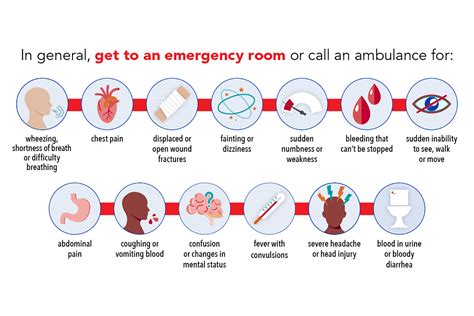Hospital Visit Timing: What Happens if You Wait Too Long?
Delaying a necessary hospital visit can have serious consequences, impacting your health and potentially leading to worse outcomes. Knowing when to seek immediate medical attention is crucial for your well-being. This article explores the potential repercussions of delaying a hospital visit, covering various scenarios and emphasizing the importance of timely care.
What are the potential consequences of delaying a hospital visit?
The consequences of delaying a hospital visit depend heavily on the nature of your medical condition. However, some general risks include:
- Worsening of symptoms: Many conditions, if left untreated, will progressively worsen. This can lead to increased pain, discomfort, and disability. For example, a simple fracture left untreated can lead to malunion (improper healing), increasing the risk of long-term complications and requiring more extensive surgery.
- Increased risk of complications: Delayed treatment can increase the likelihood of developing serious complications. A seemingly minor infection, for instance, can lead to sepsis if not addressed promptly. Similarly, a heart attack delayed in treatment dramatically increases the risk of permanent heart damage or death.
- Longer recovery time: The earlier a condition is treated, the shorter the recovery period is typically. Delaying treatment often extends the healing process and increases the possibility of lingering health problems.
- Higher medical costs: While it might seem counterintuitive, delaying treatment can ultimately increase medical expenses. A condition treated early and effectively might involve less intensive interventions and shorter hospital stays compared to a delayed treatment requiring more extensive procedures and longer recovery periods.
- Increased mortality risk: In some cases, delaying necessary hospital care can be life-threatening. Conditions like strokes and heart attacks require immediate intervention to minimize long-term damage and prevent death.
What happens if I wait too long to go to the hospital after a fall?
Falls, especially those involving the elderly or individuals with pre-existing conditions, should not be taken lightly. Delayed hospital visits after a fall can lead to:
- Internal bleeding: Internal injuries may not be immediately apparent, and delayed treatment can result in significant blood loss and potential organ damage.
- Fractures: Untreated fractures can lead to malunion, joint instability, and chronic pain. Prompt treatment allows for proper alignment and healing.
- Head injuries: Head injuries, even seemingly minor ones, can have serious long-term consequences if not promptly assessed and treated. Delayed diagnosis can increase the risk of permanent brain damage.
- Spinal cord injuries: Falls can cause spinal cord injuries, which require immediate medical attention to prevent permanent paralysis.
What happens if I wait too long to go to the hospital after a car accident?
Car accidents, regardless of the apparent severity, necessitate prompt medical evaluation. Delaying hospital care after a car accident increases the risk of:
- Internal injuries: Internal bleeding, organ damage, or other internal injuries might not be immediately obvious. A thorough examination is crucial for early diagnosis and treatment.
- Concussions: Concussions, even mild ones, require immediate attention to prevent long-term neurological problems.
- Whiplash: Delayed treatment for whiplash can lead to chronic neck pain and reduced mobility.
How long is too long to wait for a hospital visit?
There's no single answer to this question. It depends entirely on the nature and severity of your symptoms. If you experience any of the following, seek immediate medical attention:
- Severe pain
- Difficulty breathing
- Chest pain
- Loss of consciousness
- Severe bleeding
- Sudden weakness or numbness
- Signs of infection (high fever, chills, swelling)
- Persistent vomiting or diarrhea
- Changes in mental status
If you're unsure whether your condition requires immediate attention, it's always best to err on the side of caution and contact your doctor or go to the emergency room.
When should I go to the emergency room vs. see my doctor?
The decision of whether to go to the emergency room (ER) or see your doctor depends on the urgency of your condition. Go to the ER for life-threatening conditions or severe symptoms. See your doctor for less urgent concerns or for routine checkups. When in doubt, consult your doctor or call emergency services.
This information is for general knowledge and should not be considered medical advice. Always consult with a healthcare professional for any health concerns or before making any decisions related to your health or treatment.

